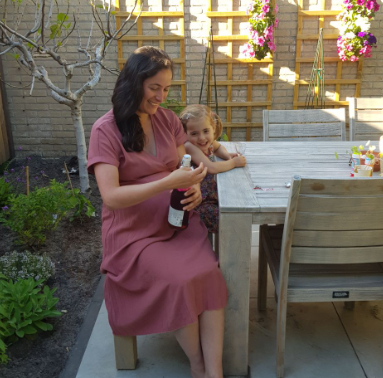My PhD dissertation
We need our brain to do many complex processes when we do our everyday activities. For instance, when we have to perform a certain task, we have to monitor our steps carefully, meanwhile controlling our emotions and avoiding negative outcomes.
We monitor our performance, our brain is busy learning from mistakes. In some individuals, these processes work differently. For instance, when you are anxious, you might react overly sensitively to a mistake, whereas if you are impulsive, you might not even notice you made an error.
In my PhD, I investigate how the brain reacts to errors and how one's performance monitoring is related to psychological disorders and the development of these conditions (psychopathology). We often use the terms cognitive control and error processing when we are monitoring our performance. We also have fancy equipment to measure brain activity and display such as EEG (electroencephalogram) and MRI (magnetic resonance imaging) while we perform cognitive tasks or games that require us to monitor performance.
To understand the role of cognitive control in psychopathology, I have investigated the development of performance on a cognitive task (Eriksen Flanker) in a large longitudinal sample of primary school children. Also, I have tested whether these trajectories were associated with the trajectories of behavioral and emotional problems. Furthermore, my dissertation includes two reviews on two error-processing event-related potentials (ERPs, measured through EEG). In a meta-analysis, where I combined effects found from different studies, I found that both error-related negativity and error positivity are diminished in patients with attention deficit hyperactivity disorder, addiction disorders, and other externalizing disorders and problems. Knowing this, I discuss to what extent we can use these neurobiological markers in the clinical field in a narrative review, written for a special issue for a journal. Finally, using data from a longitudinal study, gathered in the US, I investigated the association between social error processing, infant behavioral inhibition, and current social anxiety, while MRI scanning.
The data used in my PhD dissertation originates from an innovative approach of combining different types of studies, e.g. longitudinal cohorts and experimental studies. My PhD is made possible by the Erasmus Initiatives: Vital Cities and Citizens which stimulates research that uses collaboration between the different disciplines, in my case neuro-clinical psychology and developmental-pedagogical sciences.
I have completed my PhD in the section Clinical Psychology of the Department of Psychology, Education and Child Studies at the Erasmus University Rotterdam, the Netherlands. My supervisors are Prof. Ingmar Franken, PhD., Prof. Pol van Lier, PhD, (promotors) Rianne Kok, PhD (co-promotor) and former supervisor was Susanne Koot, PhD. I consider several other close colleagues as my mentors in my PhD journey, such as Kim de Jong, PhD and Prof. Pauline Jansen, PhD.
My PhD defense will take place on Friday the 12th of January 2024. Please feel free to rewatch the public defense. Let me know if you have any questions about the presentation.
But what is doing a PhD really? You do research, but it's like executing several complex projects. So you learn to do project management, critical thinking, presenting and lots of writing. But you do so many other things along the side, if you wish. You can teach, work on other project together with other parties/colleagues, etc. I will regularly write about what I do besides my PhD research in the blogs, see next window!





